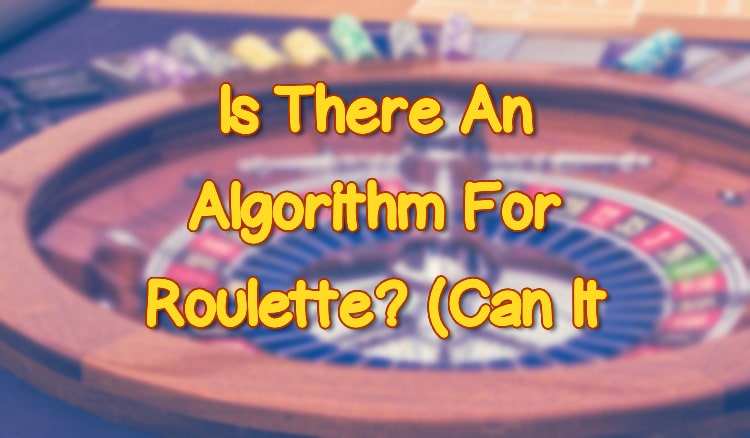
Roulette continues to be a centrepiece in both brick-and-mortar and online casinos. Its appeal lies in its simplicity and unpredictability, which keeps players on their toes with each spin of the wheel.
However, the question that often piques the curiosity of many is: "Can an algorithm predict the outcome of a roulette game?"
What is a Roulette Algorithm?
A roulette algorithm is a sequence of statistical procedures or instructions aimed to calculate and predict the outcome of the game. It operates on the assumption that by analysing the speed and rotation of the roulette wheel, it can predict where the ball will land.
Roulette algorithms are often incorporated into devices or software applications, promising players a winning edge. They come in various forms, from standalone physical devices to downloadable apps for smartphones or smartwatches. Some even claim to be linked with a laser tool, which ostensibly measures the wheel's speed to anticipate the ball's final resting place.
Is There An Algorithm You Can Use To Beat Roulette?
Roulette, by its inherent nature, is a random game of chance. Each spin is a distinct event unaffected by preceding or subsequent spins. This means that predicting the outcome of a solitary spin based on past results is fundamentally flawed. However, some players believe in the use of algorithms to increase their odds of winning despite the complete lack of evidence of them working accurately and consistently.
Other players opt for betting strategies. The most prevalent strategies include the Martingale system, which advocates doubling your bet after every loss, and the Fibonacci system, which involves wagering according to a particular sequence of numbers.
While these tactics may assist in structuring your gameplay, they do not alter the odds of the game and can still result in losses. Moreover, many casinos have rules that limit the maximum bet amount, thereby decreasing the efficacy of these strategies.
Is There A Pattern To Roulette?
Despite some players' conviction that roulette has a pattern, the game's outcomes are fundamentally random. The Random Number Generator (RNG), a computer program responsible for producing millions of random number sequences every second via a complex algorithm, ensures that each spin of the roulette wheel is random and independent of all previous spins. This RNG makes roulette a fair and unpredictable game.
Even if players observe certain numbers or colours appearing more often than others, these are simply coincidences. With enough spins, you would find that each number has an equal chance of winning, and the existence of a pattern is a myth.
Can You Defeat The Roulette Algorithm?
Attempting to beat the roulette algorithm is a tall order. Despite the high-tech sophistication that many cheating devices claim to possess, they cannot overcome roulette's inherent randomness. Moreover, the use of these devices is not only unethical but is also illegal in many jurisdictions.
Roulette prediction devices and software are often marketed as "cheat tools". However, any attempt to manipulate the outcome of a game is not only unethical but also illegal. Moreover, these devices are generally ineffective and may expose users to potential risks such as identity theft or malware, especially if they require access to sensitive information on your device.
Ultimately, there is no way to defeat the roulette algorithm. It is there to ensure random and fair outcomes to maintain the integrity of the game.
Conclusion
Roulette is a game of chance that cannot be accurately predicted or beaten. It's best to play the game as it was intended: as a game of chance that can provide entertainment, not as a way to make money.
Always remember to play responsibly, set limits for yourself, and never bet more than you can afford to lose.
